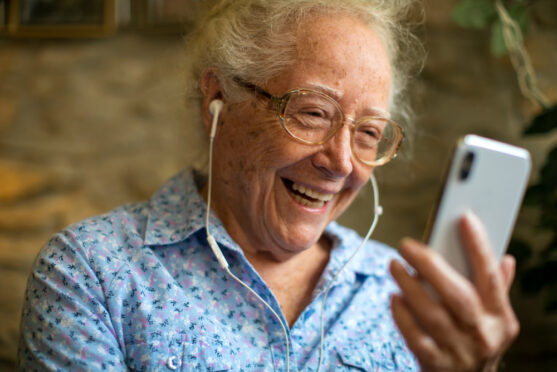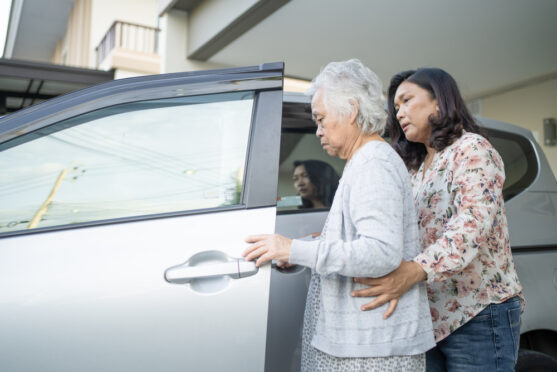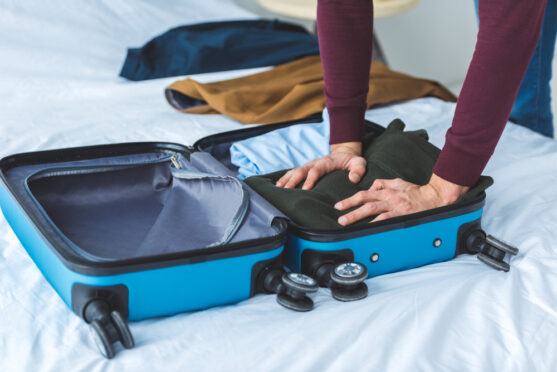If your loved one has cancer and you stay in a different city or country, it can be stressful. You may feel like you should be near them at this time, but maybe due to certain reasons you cannot. It can make you feel anxious and sometimes even guilty.
In this article, we look at how you can help your loved one with cancer, even when you cannot be present near them.
-
Make the most of phone calls
Most caregivers who are away want to connect with their loved one either through an audio or video call. However, being mindful of the most convenient time for the patient to take that call will ensure that your conversations are better.

Speak to the local caregiver to check for the best time to call, visit the patient.
Make note of which topics your loved one likes to be asked about and which ones upset them. If they like to talk about their cancer treatment, you can freely ask them about the procedures they are undergoing. If that topic upsets them, you can try talking about ‘neutral’ topics like common friends, other family members, the weather, shows on the television, sports etc. Stick to what they are comfortable with.
If you have promised to call them at a certain time, ensure that you do. Set a reminder on your phone so that you do not forget.
The purpose of your phone calls is to make them feel loved. Avoid letting arguments take away the joy of these phone calls.
-
Maintain records
You can now get digital copies of all scan reports, tests and consultations. Keep a copy of these with you if possible. Let the local caretaker know that you can provide a back-up copy in case they have misplaced or lost any of these reports.

Also maintain records of any persistent complaints they have about their health, or if any side-effects are disrupting their recovery. The local caretakers are often overwhelmed with all the things they need to do for the patient. It will be natural for them to miss out on a couple of things that you can then draw their attention to.
When doing this, remember that your role is to help the local caregiver and not make them feel incompetent. It always helps to be kind towards them as they are the primary caregivers dealing with the largest share of the caregiving
-
Help organise finances
Often, arranging finances for the treatment can be the most stressful part of a cancer journey. If this is true for your loved one, you can consider helping them find the funds. Options like crowdfunding, or loans, may interest you. You can find more details about this here.

Onco.com also offers discounts on treatment expenses, medicine costs, diagnostics etc for Onco Care Plus subscribers. This could save you upto 50,000 in cancer expenses. You can know more here.
-
Find local help
There may be aspects of the treatment that cannot be managed remotely. For example, pick-up and drop from doctor appointments or chemotherapy sessions. For this, you will need to find local friends and family who can help you.

Sometimes, it might be overwhelming for you to manage all the details of the treatment by yourself. Ask a friend or family member to help you with some of the tasks.
You can also explore professional home care options that include nurses and domestic helpers, to help the patient with their everyday tasks.
-
Prepare for travel
Sometimes, you may be required to travel to your loved one at short notice. This may be to help out with caregiving at home or in the hospital. Prepare yourself for this financially as well as mentally. Keep a spare bag of things ready, so that you need not worry about packing at the last minute.

-
Ask how you can help
If you are unsure how you can help more, ask the patient and the primary caregivers what you can do.
-
Check in with yourself
Long distance caregivers often face stress and anxiety similar to primary, local caregivers. This aspect is sometimes neglected and the consequence can be very damaging.

Even though you are not physically present near the patient, you may find that your regular work and family life is affected by their disease. Let your work colleagues and close family members know about this, so they know how to respond to missed deadlines, or undone chores.
Take care of yourself, so that you are mentally and physically well. You cannot provide much help to others if you are unwell yourself.
Speak to a counsellor to get guidance on how to deal with this situation.

